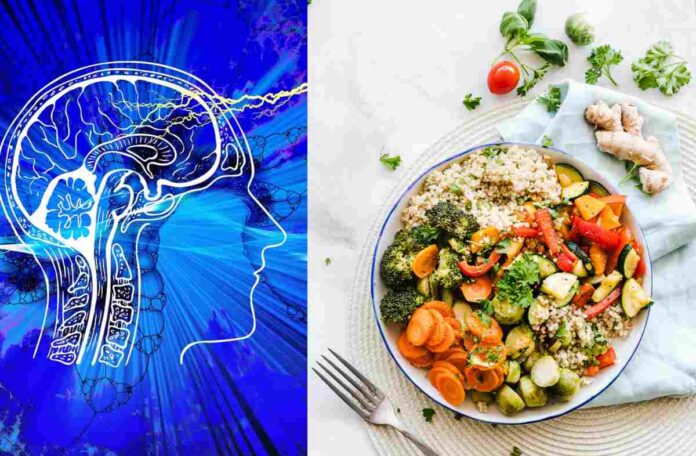UNITED KINGDOM: In a recent study, it was found that gut microbes have the capability to control the human brain. William Beaumont, an army surgeon who researched the intricacies of human digestion, found that guts are affected by emotions like anger and sadness.
Beaumont, now known as the “father of gastric physiology,” got the idea of a “gut-brain axis” from this discovery. This means that the gut and the brain are connected and affect each other.
“It’s important to remember that the microbes were here before humans existed, so we have evolved with these ‘friends with benefits’,” says John Cryan, a University College Cork (UCC) researcher in Ireland.
We now know that there is some interdependence between the gut and the brain, but microbes within our gut make the process more remarkable and complex.
Studying how our microbiome may be affecting our minds is new, growing, and still in its early stages. But in the last twenty years or so, there have been advancements, especially in the area of animals.
Little by little, more and more evidence is showing that these microbes are important to not only our physical health but also our mental and emotional health.
It was found that gut microbes can regulate the early development of neurons, leading to lasting impacts on brain circuits and behaviors. Additionally, it can regulate the production of biochemicals like serotonin, which actively stimulate neuronal activity.
Research indicates that our bacteria may interact with our brains via various routes, including biochemicals and immunology.
Another possibility is the vagus nerve, which acts like a super-fast “internet connection” between the brain and our internal organs, including the gut.

Neurotransmitter – GABA
Neurotransmitters, a class of molecules, also link your gut and brain. Feelings and emotions are controlled by neurotransmitters made in the brain.
Gamma-aminobutyric acid (GABA), a neurotransmitter that is made by the microbes in your gut, aids in the regulation of feelings of anxiety and fear.
For example, serotonin is a neurotransmitter that helps control your body clock and makes you feel happy.
Interestingly, your gut cells and the trillions of microorganisms that reside there also create many of these neurotransmitters. In the gut, a significant amount of serotonin is produced.
Studies on lab mice have demonstrated that some probiotics can boost GABA synthesis and lessen anxiety and depressive-like behaviour.
Chemicals produced by gut microbes affect the brain
The trillions of microorganisms in your gut also produce other substances that impact your brain functions.
The gut microorganisms make many short-chain fatty acids (SCFA), like butyrate, propionate, and acetate. They metabolize fiber to produce SCFA. SCFA has a number of effects on brain function, including the suppression of hunger.
According to one study, taking propionate can lower food intake and lower brain activity linked to the reward of high-energy foods.
The microorganisms that make butyrate, another SCFA, are crucial for creating the blood-brain barrier, the partition between the blood and the brain. Microorganisms in the gut also change amino acids and bile acids into other compounds that affect the brain.
The liver produces bile acids, which are substances that are often used to absorb dietary lipids. They may have an impact on the brain.
Two studies on mice showed that social problems and stress make gut bacteria make less bile acid and change the genes that make it.
Changing microbiota to enhance brain health
Keeping disclaimers aside, additional research could bring new hope.
“The fact that you can modify your microbiota potentially gives you agency over your own health outcomes,” says Cryan.
Indeed, pre- and probiotic supplements, simple dietary changes like eating more fermented foods and fiber—and perhaps even meditation—can help change our microbes in ways that improve our brain health.
When consumed, probiotics are live microorganisms that provide health benefits. Probiotics vary widely, though. “Psychobiotics” are probiotics that have a positive impact on the brain.
There is evidence that some probiotics can reduce the signs of stress, anxiety, and depression.
In a small study, people with mild to moderate anxiety, depression, and irritable bowel syndrome who took the probiotic Bifidobacterium longum NCC3001 for about six weeks significantly improved their symptoms.
Prebiotics, typically fibres that your gut bacteria ferment, may also impact your brain’s health.
One study found that eating galactooligosaccharides, a prebiotic, for three weeks cut the stress hormone cortisol in the body by a lot.
In a trial done on 45 participants, those who were put on a diet high in fiber, prebiotics, and fermented foods (including onions, sauerkraut, kefir, and yogurt) reported feeling less stressed than people in a control group that was on a different diet.
Also Read: Research Shows That the First Child May Cause Shrinkage of the Father’s Brain

